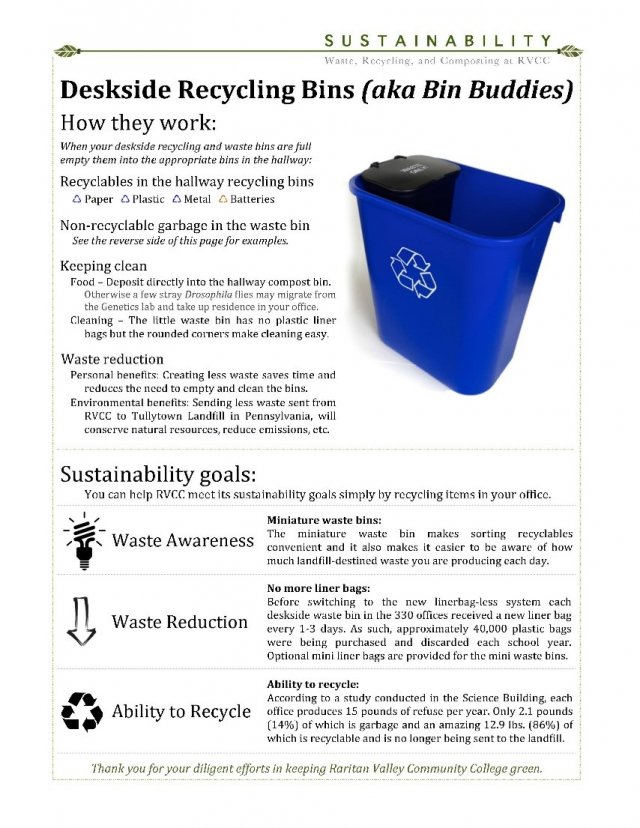2019 WasteWise Regional Award Winners
We are grateful for the dedication of our WasteWise partners and their efforts to reduce and divert waste. EPA is planning to evolve our Sustainable Materials Management partnership programs to align with our new priorities. At this time, we are no longer accepting new WasteWise partners.
Recognition is a key element of EPA’s Sustainable Materials Management (SMM) Program and WasteWise.
The 2019 WasteWise regional award winners shared details and quotes about their waste prevention and diversion activities, and about their awards with EPA. Read about their accomplishments and how they achieved them.
Disclaimer: EPA does not endorse these entities nor their services. These stories and quotes were provided by the 2019 WasteWise regional award winners.
- Northeast Region (Region 2)
- Great Lakes Region (Region 5)
- Wisconsin
- South Central Region (Region 6)
- Texas
- Pacific Southwest Region (Region 9)
- California
- Nevada
Northeast Region (Region 2)
Laddey Clark & Ryan LLP
Sparta, New Jersey
““Our entire firm regularly comes together to support causes that matter to us and our community. We decided well over ten years ago that waste prevention was one of our priorities, and we continue to escalate our efforts.” Thomas N. Ryan, Managing Partner
Laddey Clark & Ryan is the largest law firm in Sussex County, NJ and it celebrated its 30th anniversary in 2019. In 2018, the law firm diverted over 11 tons of waste from the landfill. The firm recycles paper and paper products, electronic equipment, ink cartridges, and bottles, and utilizes energy-efficient light bulbs. In recent years, Laddey Clark & Ryan began purchasing filtered water for its office to avoid use of single-use plastic bottles and stopped using disposable cups. The law firm is constantly on the look-out for opportunities to purchase more recycled products.
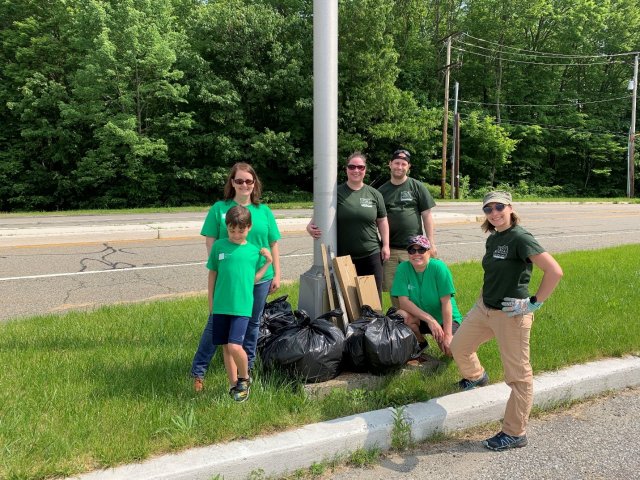
Thomas N. Ryan, the firm’s managing partner, attributes its growth, success, and staying power, in part, to its single-minded focus to be an active member of, and to serve the community in which its attorneys and staff live and work. The law firm participates in the local Sparta Bag It Day, in which local residents pick up garbage along a nearby roadbed. A key aspect of its community involvement has been the law firm’s long-time commitment to shrink its environmental footprint. Well into its second decade with this focus, Laddey Clark & Ryan is constantly looking for additional ways to “Reduce, Reuse, and Recycle.”
Mayo Performing Arts Center
Morristown, New Jersey
“MPAC is proud of our sustainability initiatives and efforts. We have eliminated single use plastic bags, eliminated plastic straws and cocktail stirrers, and increased our recycling program by over 40%. We are proudest to state we recycle 45% of our generated waste, including bottles, plastics, cardboard and program books.” Lee Kaloidis, Operations Director
Mayo Performing Arts Center (MPAC) created its Sustainability Plan in consultation with Sustainable Jersey, Sustainable Morristown, and The Dodge Foundation. The arts center joined WasteWise in 2017 and has since done a more comprehensive tracking of its managed waste. MPAC partners on a regular basis with The Town of Morristown Recycling Center, as well as the Town of Morristown, for advice and procedures.
In 2018, the arts center diverted ten tons of waste from the landfill. The center worked with the Morris County Recycling Center to recycle its lumber and concrete from construction projects, along with its used fluorescent bulbs and batteries. It donated two tons of used electronics, computers, and telephones to the Morristown Recycling Center. MPAC estimates a savings of $25,000 as a result of these diversion activities. The arts center paid less fees to its waste hauler and due to easier recycling procedures compared to taking waste to the dumpster, also paid less to its cleaning staff.
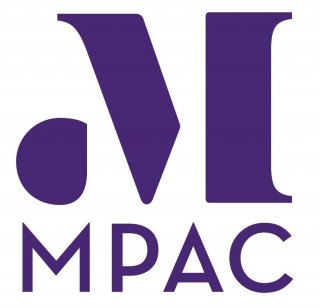
In addition, MPAC also purchased items that included a total of 3.2 tons of recycled content, further reducing its environmental footprint. During 2018, MPAC met many of its goals to create not only a more attractive facility, but also to solidify its position at the forefront of sustainability within arts and entertainment venues. MPAC’s sustainability mission statement includes not only waste reduction and recycling efforts, but also usage of low toxicity products, energy efficient lighting, LEED certified cleaning materials, and other biodegradable products.
MPAC would like to be a leading example for the Town of Morristown to educate, enlighten, and encourage all businesses to develop a sustainable business strategic plan that will benefit generations to come.
Raritan Valley Community College
North Branch, New Jersey
“We had no idea that the program would lead to such a dramatic increase in recycling. Everyone gave it their full support. Intern Deidre Supple deserves a lot of credit for envisioning and implementing the program.” Sue Dorward, Sustainability & Energy Coordinator
In 2018, Raritan Valley Community College (RVCC) recycled over 100 tons of materials and composted over seven tons of organics, tripling the college’s 2017 diversion numbers. As a result of deploying new office recycling bins, waste management stations, and informational bin signs, campus recycling increased five-fold.
RVCC’s waste management stations include a combination of container, paper, organics, batteries, bottle cap recycling bins, and trash bins. In 2017, the community college replaced office trash bins and recycling bins with small, bagless waste “buddy” bins that employees empty into nearby stations. The “buddy” bins, additional waste management stations, and explanatory signs at each station led to a significant increase in recycling in 2018. RVCC also recycles pallets, oil and grease, metals, electronic waste, light bulbs, books, toner and printer cartridges, and construction and demolition material.
Environmental responsibility is one of RVCC’s strategic principles and the college recognizes recycling and composting as ways that individuals can exercise this responsibility. The college participates in Recyclemania, Environmental Science students perform annual waste audits, and the Environmental Club made bottle cap recycling bins and organized a “Take Back the Tap” campaign.
RVCC states that communication is a lesson learned. While the college communicated well during the pilot program, it did not give the larger community enough opportunity for input or enough notice of the campus-wide program. Some employees had health and sanitary concerns that the college did not anticipate. Ultimately, the Facilities Department provided liner bags upon request, although only a few employees are using them.
Ravitz Family Markets
Cherry Hill, Marlton, and Mount Laurel, New Jersey
“Waste reduction is just the way we do things now. Newer employees have never known another way of conducting business.”
Ravitz Family Markets is a chain of family-owned supermarkets in New Jersey. The Markets have been a member of the Wakefern Food Corporation since 1984, and it works collaboratively with Wakefern to achieve the best environmental results possible. In 2018, each of the following five Ravitz Family Markets stores increased its waste diversion by five percent or more compared to 2017.
-
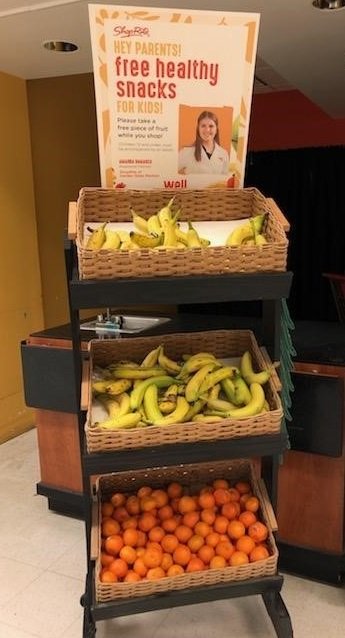
- Ravitz Family Markets, Shoprite of Garden State Pavilions, Cherry Hill, New Jersey — 481 tons of waste diverted, primarily from corrugated cardboard; mixed recyclables; and fats, oils, and greases.
- Ravitz Family Markets, Shoprite of Evesham Road, Cherry Hill, New Jersey — 463 tons of waste diverted, primarily from corrugated cardboard, mixed recyclables, and light bulbs.
- Ravitz Family Markets, Shoprite of Marlton, Marlton, New Jersey — 756 tons of waste diverted, primarily from corrugated cardboard, mixed recyclables, and light bulbs.
- Ravitz Family Markets, Shoprite of Union Mill Road, Mount Laurel, New Jersey — 305 tons of waste diverted, primarily from corrugated cardboard, mixed recyclables, and light bulbs.
Cummins Inc.'s Jamestown Engine Plant
Lakewood, New York
Cummins Inc. is a manufacturer of diesel engines, headquartered in Indiana. Its products are installed world-wide in a variety of applications. The Jamestown Engine Plant (JEP) was founded in 1974. In 2018, the plant diverted 16,202.34 tons of materials from the landfill. The facility is actively engaged in creating a comprehensive Zero Waste program by focusing on product packaging reduction and the use of returnable packaging. The JEP Environmental Champion Team works closely with its various suppliers and waste vendors to ensure strict compliance to its standards and to drive further improvements in recycling and waste minimization. The plant continually works to reduce the amount of waste it generates and the amount of natural resources that it uses.
The Cummins mission demands that everything the manufacturer does results in a cleaner, healthier, and safer environment. Cummins’ leadership facilitates accomplishment of its mission by providing the necessary resources and information to meet aggressive improvement targets in the areas of pollution prevention and natural resources conservation.
EPA’s WasteWise program is a resource that helps JEP to demonstrate environmental stewardship to its employees and the local community. In addition to its recycling efforts, the plant has successfully implemented an Annual Community Recycling Day for the local area, in which various waste streams including electronics, fluorescent light bulbs, batteries, tires, used oil, and oil-based paint are collected, free of charge.
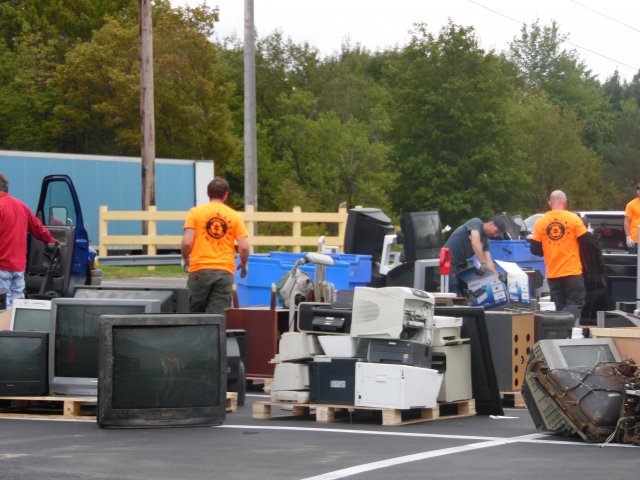
DC Safety Sales Company
Hauppauge, New York
“The WasteWise program has been a great value to DC Safety. Using their program has aided us in selecting effective goals to accomplish our commitment to our environment. It has been quite rewarding and encouraging seeing your efforts quantified. WasteWise program reporting has become a stimulus for further improvements in our environmental management system.” Debra Restmeyer, QA & Regulatory Manager
DC Safety Sales designs and sells custom first aid and emergency kit solutions to the automotive industry. The company prides itself on being an environmentally responsible company, protecting the environment, and minimizing waste as much as possible. In 2018, DC Safety recycled 72 tons of corrugated cartons, and over five tons of office paper waste, with a total of over 78 tons of waste diverted from the landfill. All employees are trained in the environmental policy and objectives adopted by executive management, including recycling, reusing, and generally reducing the amount of solid waste generated. The company conducts an annual assessment of the effectiveness of its environmental controls, and changes its practices based upon the results. Personnel from a variety of perspectives meet to evaluate any changes impacting operations and the facility.
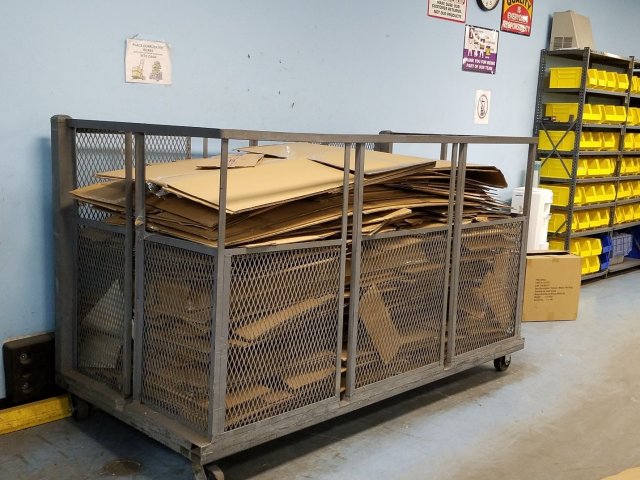
Evelyn Hill
New York, New York
“Wastewise has been our guide and resource to maintain our Zero-waste for over a decade. Without the Agency's assistance we would not have been able to achieve such a high diversion rate.”
Evelyn Hill, Inc. has been a concessioner at the Statue of Liberty and Ellis Island National Monument for 83 years. It has been a zero waste company for 11 years. In 2018, Evelyn Hill had a record diversion rate, diverting up to 97.3 percent of its trash (excluding restroom trash) generated by the concessioner and the 4.2 million visitors who come to the Statue of Liberty and Ellis Island National Monument. The concessioner diverted 398 tons through prevention, donation, and composting actions. Compost was the largest category of waste diverted, comprising approximately 46 percent of the total waste. 960 pounds of cardboard, all plastics, glass, aluminum and even potato chip bags were recycled. Evelyn Hill’s total amount of landfilled garbage in 2018 was 14.29 tons, or only 79 pounds of trash per day for the entire park.
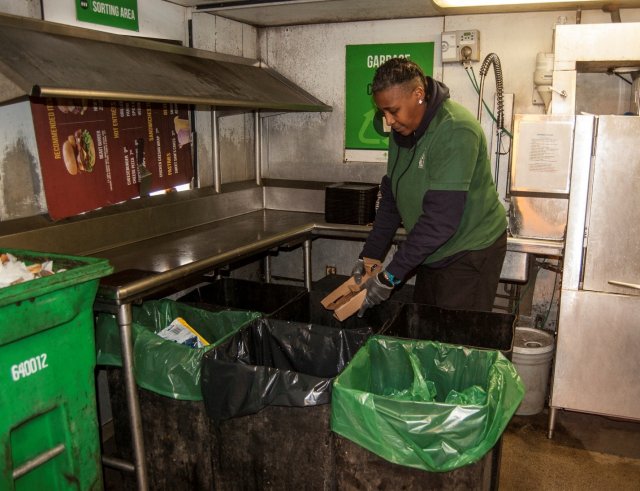
Just Salad LLC
New York, New York
“Just Salad’s Reusable Bowl program proves that reusables can serve as a viable alternative to single-use disposables in the fast casual industry. It’s a compelling program that simultaneously fosters guest loyalty and reduces plastic waste.” Sandra Noonan, Chief Sustainability Officer
Just Salad, a fast casual restaurant, was founded in 2006 in New York City. It employs over 1,000 teammates in 40 locations. Just Salad implements the world's largest restaurant reusable program. In 2018, as a result of its Reusable Bowl program, the restaurant saved 38 tons of plastic. Under this program, guests can purchase a Reusable Bowl for $1 and get a free topping, (like avocado) with every reuse. The Reusable Bowl program serves as both a restaurant loyalty program and a waste diversion initiative. Just Salad tracks usage of the bowls on a yearly basis and calculates how many pounds of single-use plastic, in the form of plastic salad bowls, it has diverted from landfill. The program’s success lies in effective team training and year-round promotions centered on the bowl.
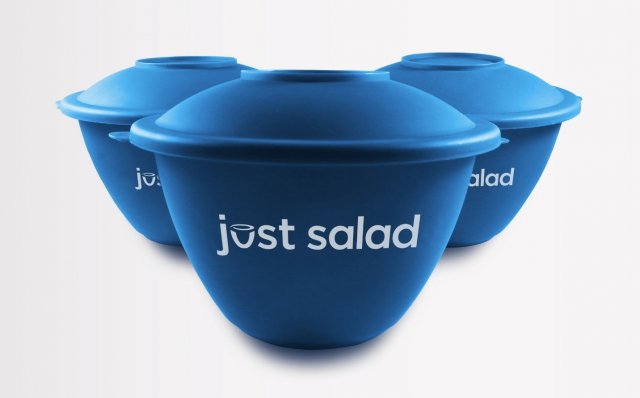
University of Albany, State University of New York
Albany, New York
“Our students play a vital role in furthering our waste diversion efforts. The research and educational outreach they provide to our campus is invaluable and provides them real world experience as change agents.” Dr. Mary Ellen Mallia, Director of Sustainability
The University at Albany, State University of New York, has approximately 18,000 undergraduate and graduate students, and over 4,000 employees, distributed across three campuses. Since instituting a recycling program in 2005, the university has worked to increase the variety and tonnage of items it diverts from the landfill. In 2018, it diverted 2,225 tons of waste.
Students play an important role in researching waste diversion alternatives, as well as educating their peers on proper practices. Most recently, a team of student researchers partnered with Residential Life staff to conduct an experiment as to the best waste and recycling bin combination for the university’s living residences. The students studied and analyzed six recycling bin options in terms of performance (contamination rates) and resident preferences in order to make a recommendation to the campus facilities department. As a result, the university purchased new waste/recycling bins and students are continuing to monitor their effectiveness.
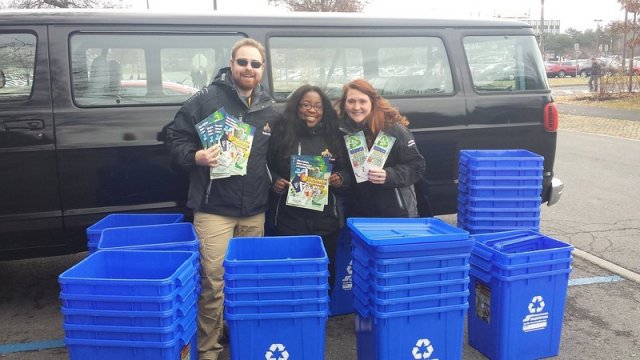
To support this infrastructure change, student educators conduct a ten minute hands-on demonstration called “What is Recyclable.” This presentation utilizes containers from the campus center and other food outlets, along with common household items and invites participants to identify which items should be recycled, landfilled, or composted. The presentations are made to student groups, campus offices, and even as pop-up events. In 2019, students exhibited over 20 of these events reaching hundreds of campus members.
Great Lakes Region (Region 5)
Kohl's Department Stores
Menomonee Falls, Wisconsin
"We believe in incorporating sustainable solutions into how we do business, including our commitment to reducing waste, reusing and recycling materials, as well as promoting waste reduction solutions to our customers, associates and partners. Kohl's has committed to a goal of diverting 85 percent of U.S. operational waste from landfills by the end of 2025, and will continue to seek ways to surpass this goal.”
With such a large retail footprint, Kohl’s is in a unique position to make a positive impact in sustainability areas, including waste management. In 2018, Kohl’s achieved an 83 percent diversion rate, recycling more than 130,000 tons of material, including more than seven million pounds of plastic film and 230 million pounds of cardboard. The company has a solid waste management policy which governs recycling practices at stores and corporate facilities. Initiatives such as paperless billing, beauty product and fabric scrap repurposing, along with the separation of cardboard, paper, and plastic are key company-wide practices. Recycling saves the company money, which helps stores offset operational costs, making waste reduction good for business as well as the planet. Kohl’s efforts to reduce waste and conserve resources include:
- Developing partnerships to recycle plastic film, bags, and wrap
- Procuring Kohl’s signature gray bags with 30-50 percent recycled, unbleached plastic
- Providing in-store recycling bins for customers to drop plastic bags
- Reminding Kohl’s cardholders they can opt for paperless billing
- Partnering with How2Recycle to help customers more easily determine how to recycle select materials
Making associates aware of the environmental and financial impacts of the company’s sustainability efforts is one of Kohl’s greatest challenges. Overcoming this challenge can help increase compliance with the company’s sustainability policies.
South Central Region (Region 6)
Owens PLLC
DeSoto, Texas
Owens PLLC is a small law firm that wanted to make an impact in protecting our environment. The firm is a heavy user of paper as a necessity of legal practice. In 2018, the firm ramped up its efforts to significantly decrease its use of paper. It reduced paper usage by approximately 25 percent and reduced overall waste by an estimated 90 percent. Owens PLLC completed a review of documents to determine what required paper copies and what could be converted to digital copies. After refining the documentation process, the firm significantly decreased its use of paper which resulted in a cost saving and a decreased need for recycling. The firm further expanded its effort to save paper by transferring paper subscriptions, billing statements, and other paper intense items to on-line versions. Owens PLCC also evaluated its filing system. As a practice, many original items were copied to store files in the office. To save paper, the firm created a comprehensive on-line filing system to scan items that needed to be saved.
Pacific Southwest Region (Region 9)
Earth Friendly Products
Cypress, California
“For over 50 years we’ve made sustainability a key part of our mission, and being recognized with the EPA’s WasteWise Award is a wonderful acknowledgement of our comprehensive approach to waste reduction. The WasteWise program is a very important part of our long-term commitment to protecting our planet.” Kelly Vlahakis-Hanks, President and CEO
Earth Friendly Products (ECOS®) has been making green laundry detergents and cleaners for over 50 years. Its products, manufacturing processes, and facilities are designed to reduce its impact on the environment. In 2018, the manufacturing company achieved a 98 percent waste diversion rate, and uses one small trash container per facility per week. Its California manufacturing facility prevented 105 tons of waste, recycled 125 tons of materials, donated 12 tons of products, and composted four tons of organic materials.

Earth Friendly Products began its zero-waste journey in 2009 with a goal to reduce waste by 80 percent by 2020. Its waste diversion rate was 10 percent and each of its four facilities used 20 large trash bins per week. By 2013, the company had achieved a 95 percent waste diversion rate and reduced its trash containers to one large container per facility per week. As a Platinum-level TRUE Zero Waste company, Earth Friendly Products separates recyclable materials and works with its suppliers and vendors to avoid unnecessary materials in the product lifecycle. With a little bit of dumpster diving, Dr. Nadereh Afsharmanesh, Vice President of Sustainability, and her team assess the waste flow at each facility, evaluating volume, cost and frequency of collection. The company trains its employees to see waste as a collection of valuable resources. The cost savings that have resulted from its accomplishments fund the company’s sustainability programs and grow its business. Since 2011, Earth Friendly Products has saved $223,000 in waste disposal costs, earned $115,000 in recycling revenue, and gained $50,000 in repair and reuse savings.
Caesars Entertainment
Paradise, Nevada
“We continue improving our waste management and recycling programs through education, tracking, and partnerships to achieve goals that align with our broader commitment to environmental stewardship. Environmental awareness, engagement, and performance are part of our lifeblood here at Caesars Entertainment.” Jeffrey Ruskowitz, Director, Sustainable Operations
In 2007, Caesars Entertainment set a public goal to divert 50 percent of all of its waste by 2020. In 2018, Caesars achieved an overall enterprise diversion rate of 49.4 percent, nearly eclipsing its 2020 goal. Also in 2018, ten resort properties achieved the gaming hotel and casino company’s 2020 target diversion rate, which included recycling 68,700 tons of municipal solid materials. Since 2012, nearly 400,000 tons of materials have been diverted from Caesars’ properties, saving millions of dollars in disposal fees and preventing methane emissions. In 2012, Caesars’ first annual diversion rate was 23.6 percent. In 2013, Caesars began to increase this number by launching and refreshing waste management programs at all of its properties.
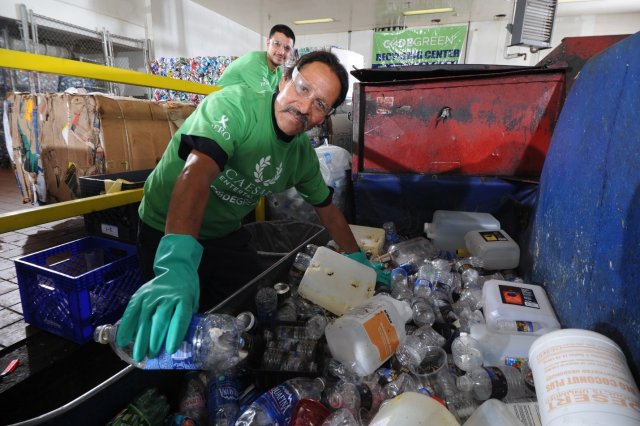
At its largest properties, Caesars has dock workers who sort through all waste material, looking for recyclable materials or assets. At its other properties, Caesars uses a combination of single stream recycling programs, and guest and employee sorting programs. Caesars also filters and recycles cooking oil, diverts its electronic waste from landfills, sends organics to composting and animal feed facilities, and donates used furniture from its renovation projects. As many companies know, simplifying the recycling process leads to greater results. A unique challenge to Caesars is that most of its materials stream is generated by hotel and casino guests. By sorting post-consumer waste on its docks, Caesars can achieve over 50 percent diversion.

